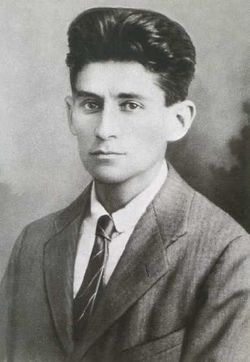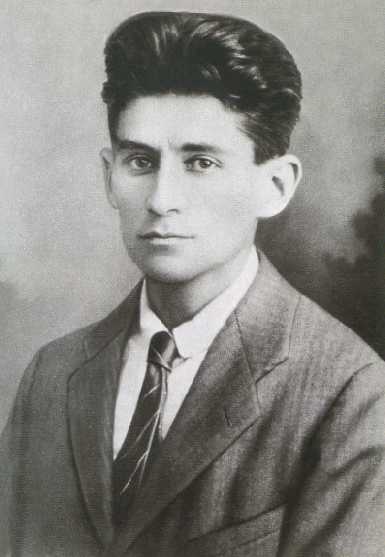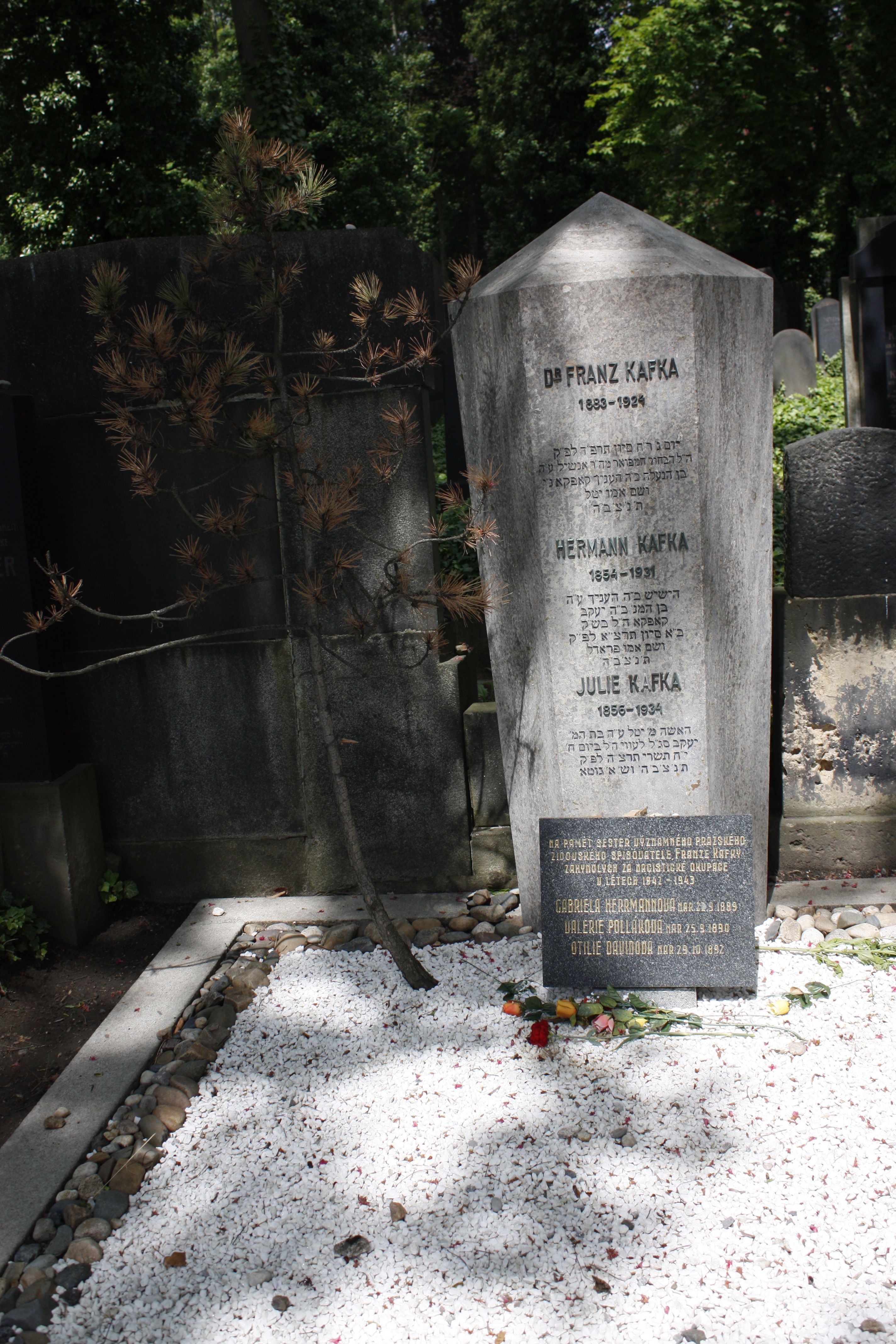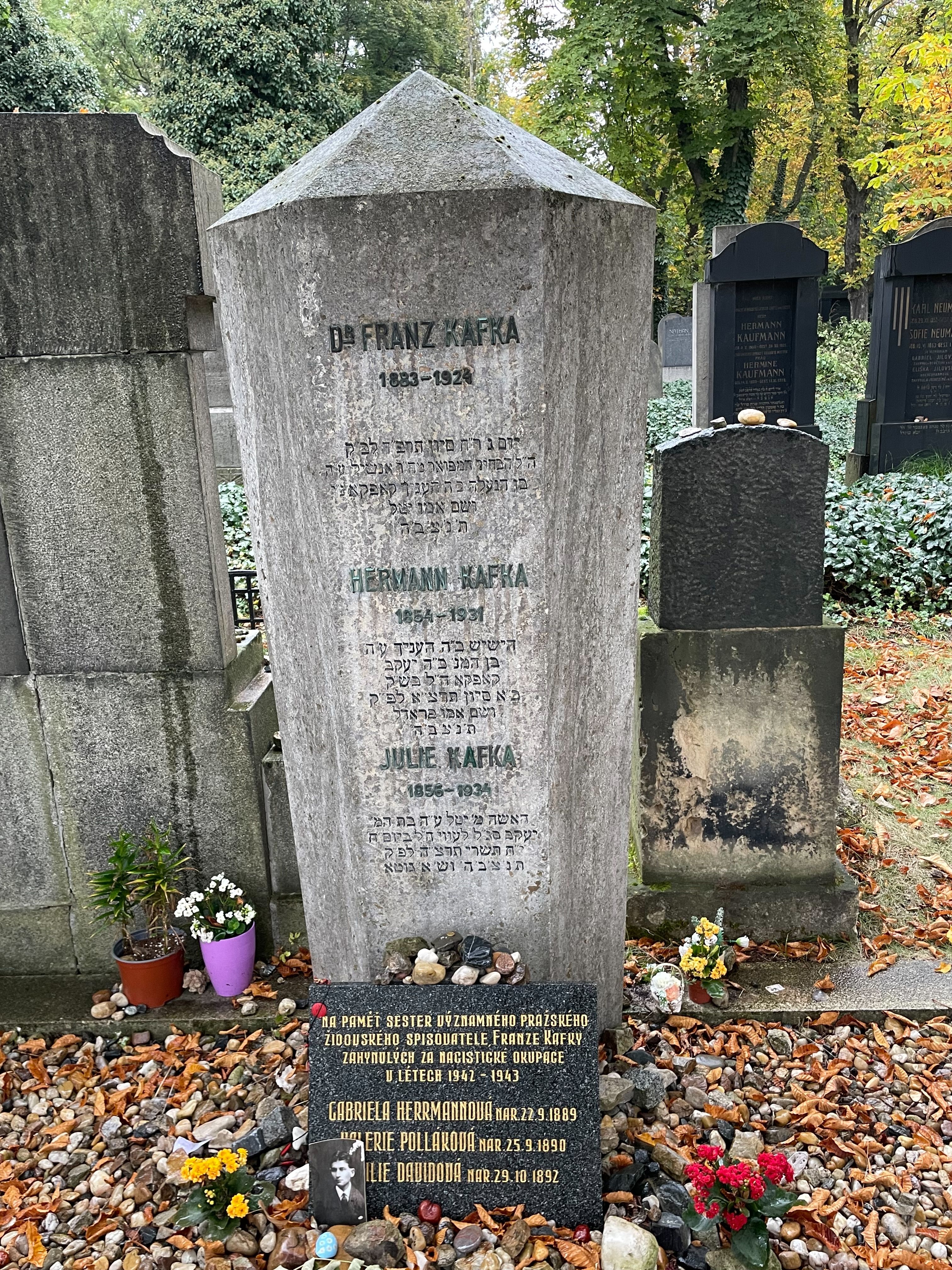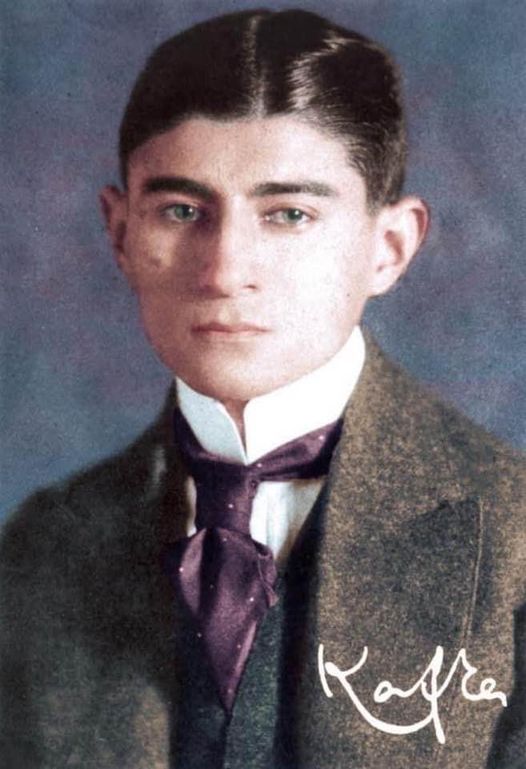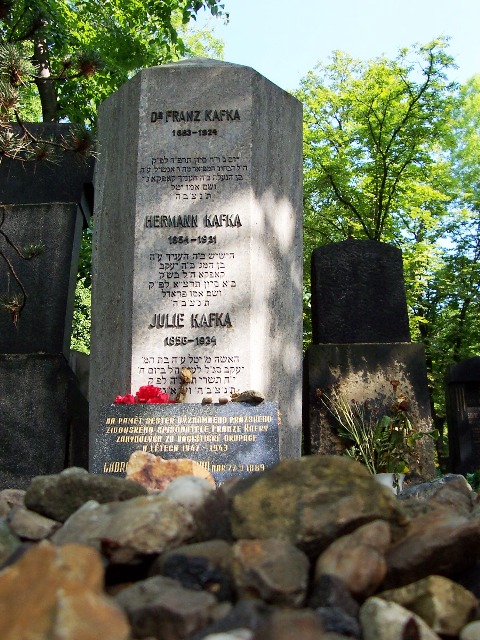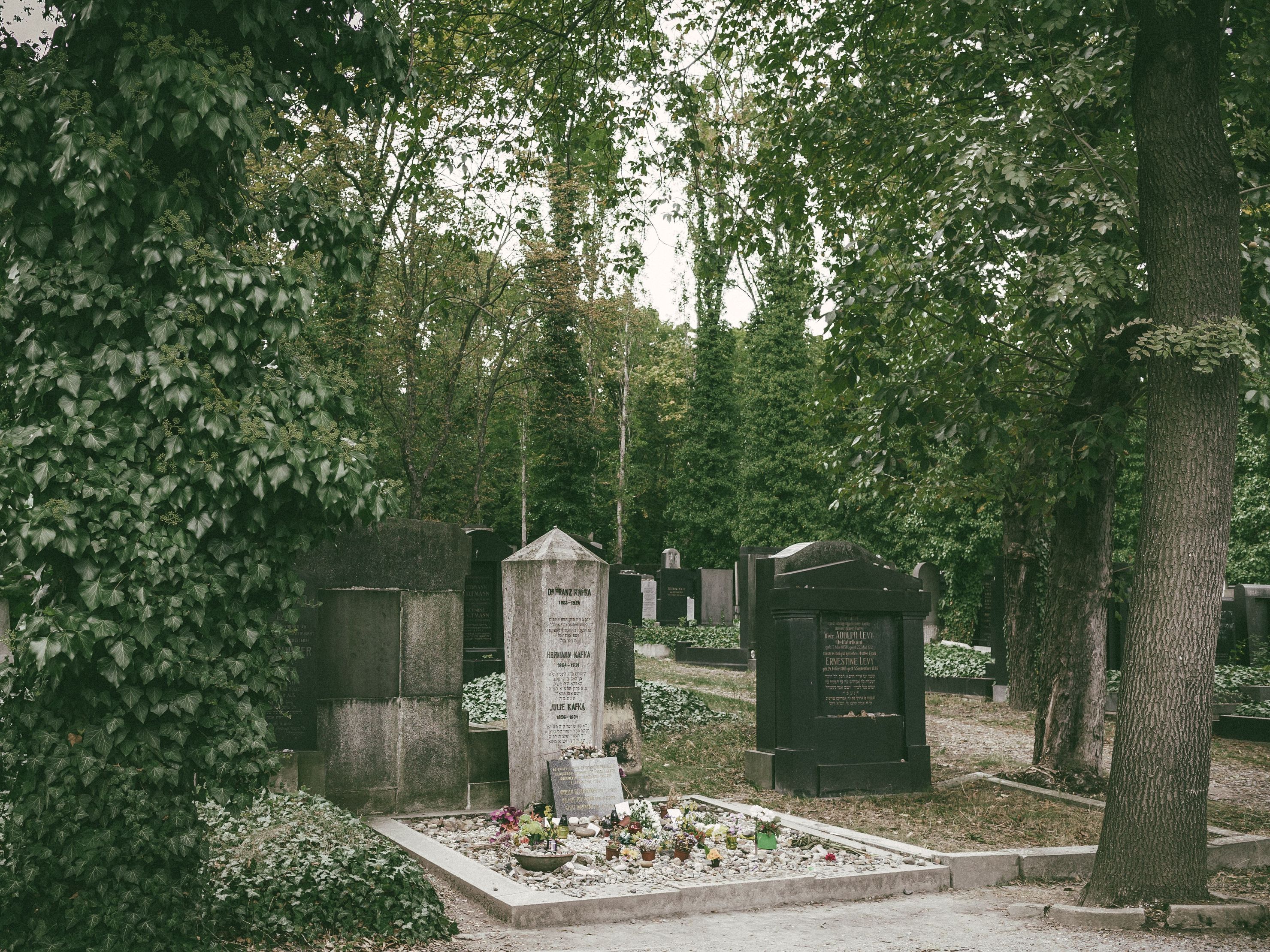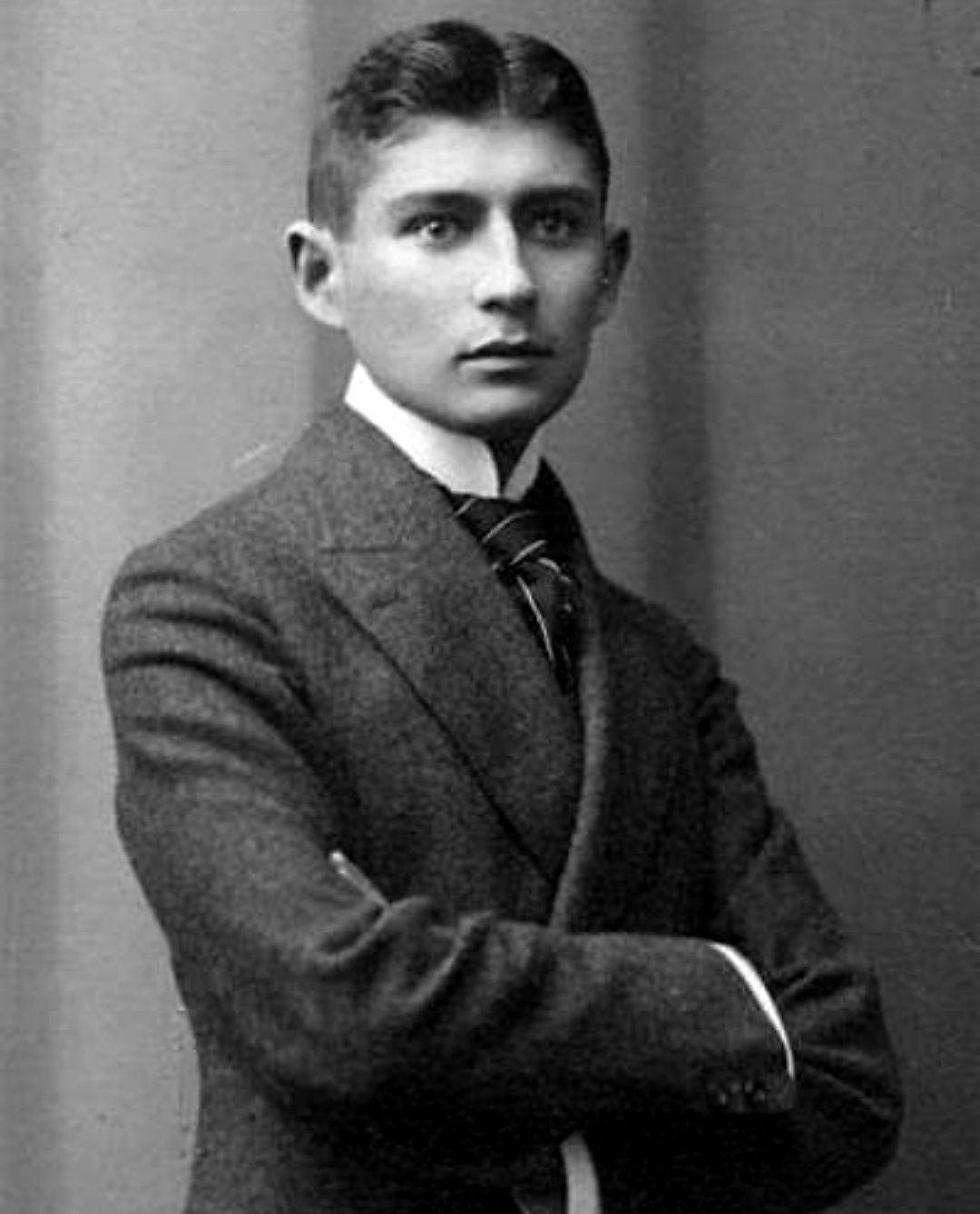Bio by: Jelena
Inscription
(Hebrew) "Tuesday, first of the month of Sivan 5684. The magnificent, unmarried man, cited above, our teacher and master Anschel, of blessed memory, the son of the greatly revered R. Heinich Kafka, may his light shine. His mother's name is Yettl. May his soul be bound in the union of life"
At 40, Franz Kafka (1883-1924), who never married and had no children, was walking through a park one day in Berlin when he met a girl who was crying because she had lost her favourite doll. She and Kafka searched for the doll unsuccessfully.
Kafka told her to meet him there the next day and they would come back to look for her.
The next day, when they had not yet found the doll, Kafka gave the girl a letter "written" by the doll saying "please don't cry. I took a trip to see the world. I will write to you about my adventures."
Thus began a story which continued until the end of Kafka's life.
During their meetings, Kafka read the letters of the doll carefully written with adventures and conversations that the girl found adorable.
Finally, Kafka brought back the doll (he bought one) that had returned to Berlin.
"It doesn't look like my doll at all," said the girl.
Kafka handed her another letter in which the doll wrote: "my travels have changed me." The little girl hugged the new doll and brought the doll with her to her happy home.
A year later Kafka died.
Many years later, the now-adult girl found a letter inside the doll. In the tiny letter signed by Kafka it was written:
"Everything you love will probably be lost, but in the end, love will return in another way."
Embrace change. It's inevitable for growth. Together we can shift pain into wonder and love, but it is up to us to consciously and intentionally create that connection.
Family Members
Advertisement
See more Kafka memorials in:
Explore more
Sponsored by Ancestry
Advertisement
